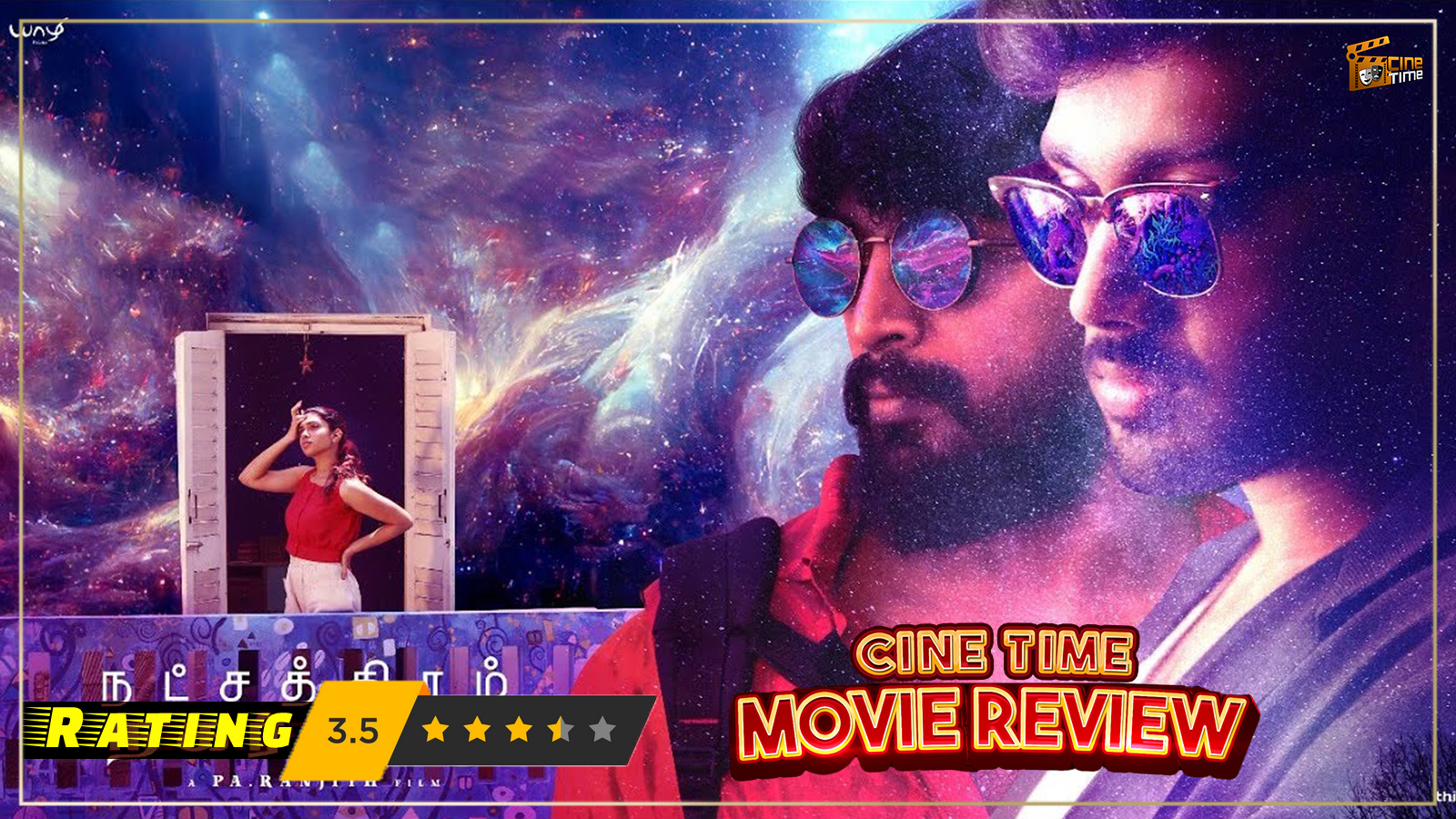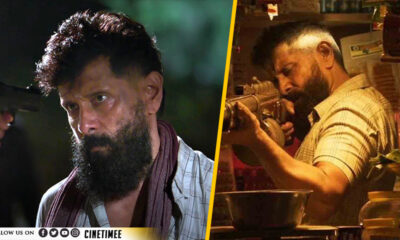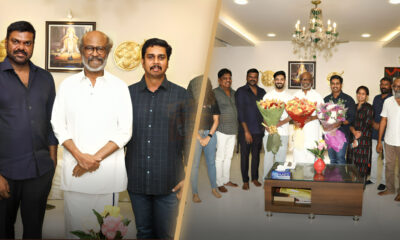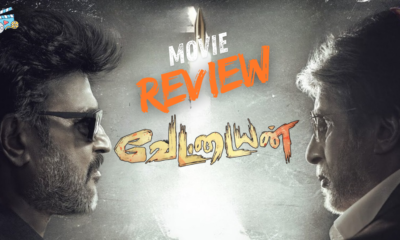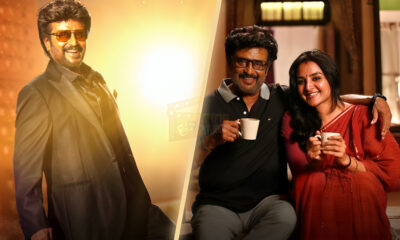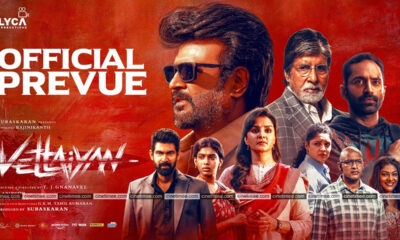Rene, the female protagonist of Natchathiram Nagargiradhu, is a person who lives life on her own terms. She is played by Dushara Vijayan, who expertly depicts the hidden layers of this mysterious character. Even better, she prefers that others use the moniker she has given herself to refer to her rather than her real name, Tamizh. She is confident enough to say that she is a broken mirror who cracked with every tiny insult that was hurled at her due to her caste beginning in her childhood.
“I fervently want to demonstrate that I am a stronger and bolder person.” She accomplishes this with her no-nonsense outlook. She will say whatever comes to mind, act as she pleases, and consume what she pleases. Who are you to challenge it?
Like Rene, Pa Ranjith’s Natchathiram Nagargiradhu, too, is an unabashedly outspoken film — on not just the politics that exists behind love, but also on the insignificance of our lives (“Naamellaam Oru Chinna thugal dhaan-nu accept pannikitaale sema jolly-a irukkalaam”), the acceptance of our flaws (“Political correctness doesn’t come in a day; it’s a life-long process”), the need for inclusivity, and even on Ilaiyarajaa as a musical genius and a figure of empowerment.
Ranjith illustrates his arguments by relating the tale of a theatrical company in Pondicherry that intends to present a brand-new play on love and its politicization of it. This group is also experiencing some love triangle drama. One of the many flaws Rene has chosen to exploit to fortify herself is the fact that she has broken up with Iniyian (Kalidas Jayaram, who is vital in a role that feels underwritten in comparison to the other two lead roles). Rene’s comment about Iniyian’s caste is just one of many that she has used.
Arjun (a wonderful Kalaiyarasan) is a conservative small-town man with thoughts and dreams of a movie star. Despite the fact that he is betrothed to Roshini, the woman his family has chosen for him to marry, Arjun finds himself drawn to Rene. Sekar, a middle-aged man, is vying for Merlin’s affections, a French woman who is at least half his age. Sylvia, a trans woman, has found Joel to be the man she truly loves. There is a married man in a long-distance relationship, a lesbian couple who are open about their relationship, and a homosexual pair who are still figuring things out. The troupe’s director, Zubin, is another; they were married in a multifaith ceremony.
Ranjith never romanticizes love, despite the fact that the movie is about it. The Rene-Iniyan single is delivered in a matter-of-fact way and follows a traditional framework (lovers who have split up but can’t forget each other). Even though their initial encounter is not shown as a meet-cute but rather as a moment that reveals more about their personalities; Iniyan is intrigued by Rene’s outlook on life even though she can sense the toxicity in him. When they are just beginning to hesitantly explore their inescapable connection to one another, a bike ride through gorgeous areas of Kerala becomes an opportunity to reflect on oppression, which is the exact reverse of what you would expect from a Gautham Vasudev Menon film.
Ranjith continues the cinematic style that gave Sarpatta Parambarai such a powerful emotional impact. Kishor Kumar’s cinematography replicates the looseness of the writing by gliding beside the characters or coming close to them, letting us watch as they put the play together while coping with their own problems. Selva RK’s editing follows this strategy as well, letting the sequences linger for a fraction of a second longer to give the images more movement. The trio’s masterful integration of the activities taking place in various locations during the pre-intermission stretch is a wonderful example of the mastery of their craft.
Sometimes a director will alter the format. A scene with a cinematic set-up when the characters discuss the play’s theme morphs into a conversation on love, caste, and honor killings. Arjun’s side trip develops into a caste-themed short satire in and of itself. In the latter half of the movie, we even see documentary-style interviews with survivors and actual honour killings on camera. Every neighborhood is discussed, including the politics surrounding food and clothing. There are also moments that mimic a play’s aesthetics. This blending of genres actually gives the movie a very new-age air (much like Tenma’s unique songs and score), and it elevates the experience to something that shouldn’t be missed.
The movie Natchathiram Nagargirathu may be the first to address such complex issues between couples. While casteism is typically shown in movies as the adversary that is out to destroy love, it also plays an interior role in this one.
Natchathiram Nagargiradhu Review By CineTimee
[wp-review id=”43787″]


